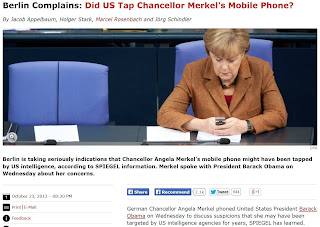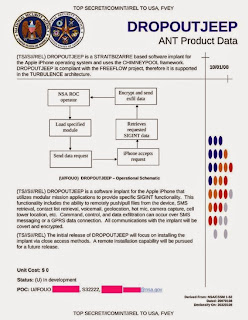It was not my intention to write about this, but military operations have begun, this will end neither well nor soon, and this ties in to other series I am writing, so here begins another series. :)
As you of course know, after high-profile beheadings of Western journalists, multinational operations have begun against the self-proclaimed Islamic State or IS, known among Western governments as the Islamic State of Iraq and the Levant or ISIL, and known among Western media as the Islamic State in Iraq and Syria or ISIS.
There has been much debate over which name to use. The term Islamic State is not commonly used in the West, which leaves the debate between ISIS and ISIL. For a variety of reasons, the media has settled on ISIS, and that will be the term I will use in this series.
Some of the discussion over which name to use is significant, however. By calling itself simply "the Islamic State", the group has doubled-down on its establishment of a caliphate, basically making a unilateral claim to lead the world's Islamic terrorist movement in battle against all infidels. While many other terrorist groups around the world have expressed support, including Boko Haram of Nigerian fame and Abu Sayyaf of the Philippines, ultimately, if all these guys get their way and start collectively defeating world infidel forces (to include all the apostate Muslim forces from countries such as Iran and Saudi Arabia), there will have to be a decision as to who will really lead the jihadists. It is obvious to me that, amid many uses of the word "takfir" (apostate), such a decision would be arrived at violently.
__________
Basically, Al Qaeda had two horses in the Syrian civil war race: the Al Nusrah Front, and the Islamic State in Iraq and Syria (ISIS). However, ISIS left the Al Qaeda fold to go it alone. From The Resurgence of Al-Qaeda in Syria and Iraq by Azeem Ibrahim at the US Army War College Strategic Studies Institute, May 2014, page 16 (28 of 81 in the pdf; numbers in superscript refer to notes - in cases where I have not reproduced them, see the original):
While ISIS and the Al Nusrah Front attract media attention because of their al-Qaeda affiliation, past or still existing, the other fighting factions in Syria deserve attention regarding their ideology and makeup as "moderate" forces, possible counterweights to al-Qaeda. The Syrian Islamic Front is the biggest alliance of salafi-jihadis, and, while many would like to see them as "moderate," they are committed first to defeating Assad's troops and then to creating an Islamic state, as opposed to al-Qaeda which is committed first and foremost to global jihad.
So in other words, the differences among the factions boil down to this: 1) Al Qaeda wants to go on a global jihad; 2) ISIS has by its name "The Islamic State" declared itself a caliphate, and now wants to go on a global jihad; 3) the "moderates" want to depose the current Syrian government of Assad, then declare an Islamic State, then expand their jihad on to other targets.
The very next paragraph explains how this Islamic state would work. Continuing with The Resurgence of Al-Qaeda in Syria and Iraq by Azeem Ibrahim at the US Army War College Strategic Studies Institute, May 2014, page 16 (28 of 81 in the pdf):
Aron Lund's recent comprehensive reporting for Syria in Crisis32 notes that the Islamic Front wants "to establish an independent state where God's merciful law is sovereign and where the individuals of this state enjoy justice and a dignified life." It spurns the term "civil state" (dawla madaniya) as misleading and rejects democracy and parliamentary rule. They appear to be envisioning "a republican theocracy supervised by religious scholars where there is some degree of political competition within sharia-compliant but otherwise modern institutions and where the role of politicians is to administer a strict application of sharia rather than to make laws of their own."
In other words, there will be dictatorship by a small group of individuals who will decide what is Islamic and what is not, and membership in the group can be expected to change, and the group itself may be replaced with other groups.
It is not difficult to imagine that this will happen not democratically, since democratic processes are generally spurned, but rather by the will of Allah, which will naturally manifest itself in a violent manner as internal politics becomes a matter of convincing a strong enough faction to make takfir (apostate) out of the targeted faction.
However, this process of extremists declaring each other takfir has resulted not only in a great deal of violence within and among extremist groups; it has also alienated many Muslims. Skipping back in The Resurgence of Al-Qaeda in Syria and Iraq by Azeem Ibrahim at the US Army War College Strategic Studies Institute, May 2014, to page 13 (25 of 81 in the pdf):
Al-Zawahiri, from his refuge in Pakistan, has belatedly realized that the militants' increasing ferocity and widespread practice of takfir (declaring other Muslims infidels) is not winning over the Muslim world.23
To understand better the relationship between ISIS and Al Qaeda's Al Nusrah Front, as well as the relationship between these two and other Sunni militant groups in Syria, we skip ahead in The Resurgence of Al-Qaeda in Syria and Iraq by Azeem Ibrahim at the US Army War College Strategic Studies Institute, May 2014, to page 18 (30 of 81 in the pdf):
The Al Nusrah Front (Jahbat al-Nusrah) is directly subordinate to al-Qaeda leader Ayman al-Zawahiri. The rival ISIS, led by Abu Bakr al-Baghdadi, despite its resurgence in Iraq, is being run as a renegade operation since al-Baghdadi defied al-Zawahiri's leadership. These two al-Qaeda branches have an estimated 6,000-7,000 operatives,36 and new recruits are continuing to arrive in large numbers. The other salafist rebel groups in Syria total about 100,000;37 thus the proportion of fighters with formal al-Qaeda loyalty is comparatively small. There are many groups who are on record as disavowing al-Qaeda, but that adhere to the salafi-jihadi objectives, adding to the complexity of predicting the strength of al-Qaeda as a distinct ideology, network, and organization.
This would support the view that al-Qaeda is divided effectively from other jihadist groups in Syria. Thus, not only is it at war with the regime and those who follow the Shia traditions, but is also at variance to other radical Sunni groups. In addition, even those who directly share its ideology are split into two factions. This may indicate that there are limits to its ability to influence events. However, in combination with its resurgence in Iraq, it is clear that al-Qaeda is again a major force.
The analysis of that paper had its focus on Al Qaeda. However, since then, ISIS has come to the forefront.
What distinguishes ISIS from the other groups, then, is this: 1) unlike the other Sunni groups, the so-called "moderate" forces, ISIS feels it is ready to take on the entire world, both infidels and takfir alike, beginning right now; 2) unlike Al Qaeda, ISIS has gone ahead and declared itself a caliphate, seizing and claiming territory as a base for the jihad against the rest of the world; and, 3) unlike Al Qaeda, which is trying to profit from lessons about how past atrocious behavior alienated potential supporters, ISIS seems bent on behaving as atrociously as Allah wills.




















